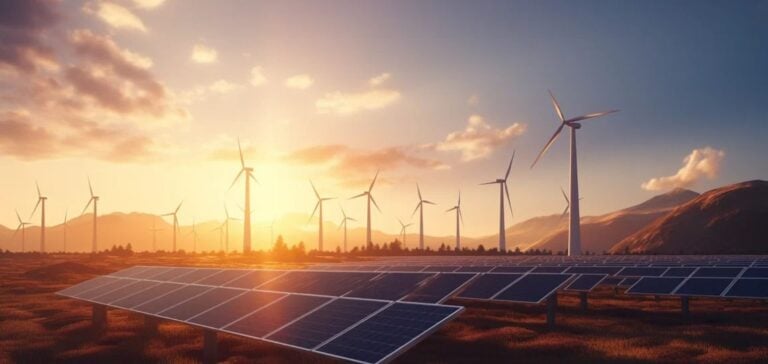The energy transition of Côte d’Ivoire gains momentum with the signing of a financing agreement between the Ivorian Ministry of Finance and Budget and the European Union (EU). This partnership, concluded on November 27, 2024, allocates €15 million (approximately 9.84 billion CFA francs) to the Green Energy Production Support Project (PAPEV).
This project aligns with the country’s strategy to increase the share of renewable energy in its electricity production to 45% by 2030. Currently, Côte d’Ivoire’s energy mix is dominated by thermal power plants, which account for 75.82% of the gross electricity production, compared to 23.98% for hydroelectric facilities.
An Expanded Partnership for Sustainable Growth
The €15 million funding is part of a broader framework that includes five agreements totaling €112 million. Among the highlighted areas, a particular focus is placed on promoting “inclusive and sustainable growth,” with a dedicated budget of €50 million.
The primary goal of PAPEV is to strengthen electricity production from renewable sources, including solar, wind, and biomass. This initiative also aims to improve access to electricity in rural areas, contributing to greater energy equity nationwide.
Continuous Growth in Electricity Production
According to data from the Ministry of Economy, Côte d’Ivoire’s gross electricity production nearly doubled between 2018 and 2023, rising from 7,125 GWh to 13,345 GWh. This growth is essential to meet increasing energy demand driven by economic expansion and rapid urbanization.
In addition to efforts to expand renewable capacities, Côte d’Ivoire continues to develop its thermal infrastructure. However, authorities emphasize the importance of diversifying energy sources to reduce reliance on fossil fuels and curb greenhouse gas emissions.
Outlook for 2030
The cooperation with the European Union highlights Côte d’Ivoire’s commitment to combating climate change while fostering sustainable energy development. Through initiatives like PAPEV, the country aims to become a model for green energy in West Africa.
This transformation is also expected to attract new international investments, thereby strengthening the nation’s economic foundations and improving living conditions for its population.






















